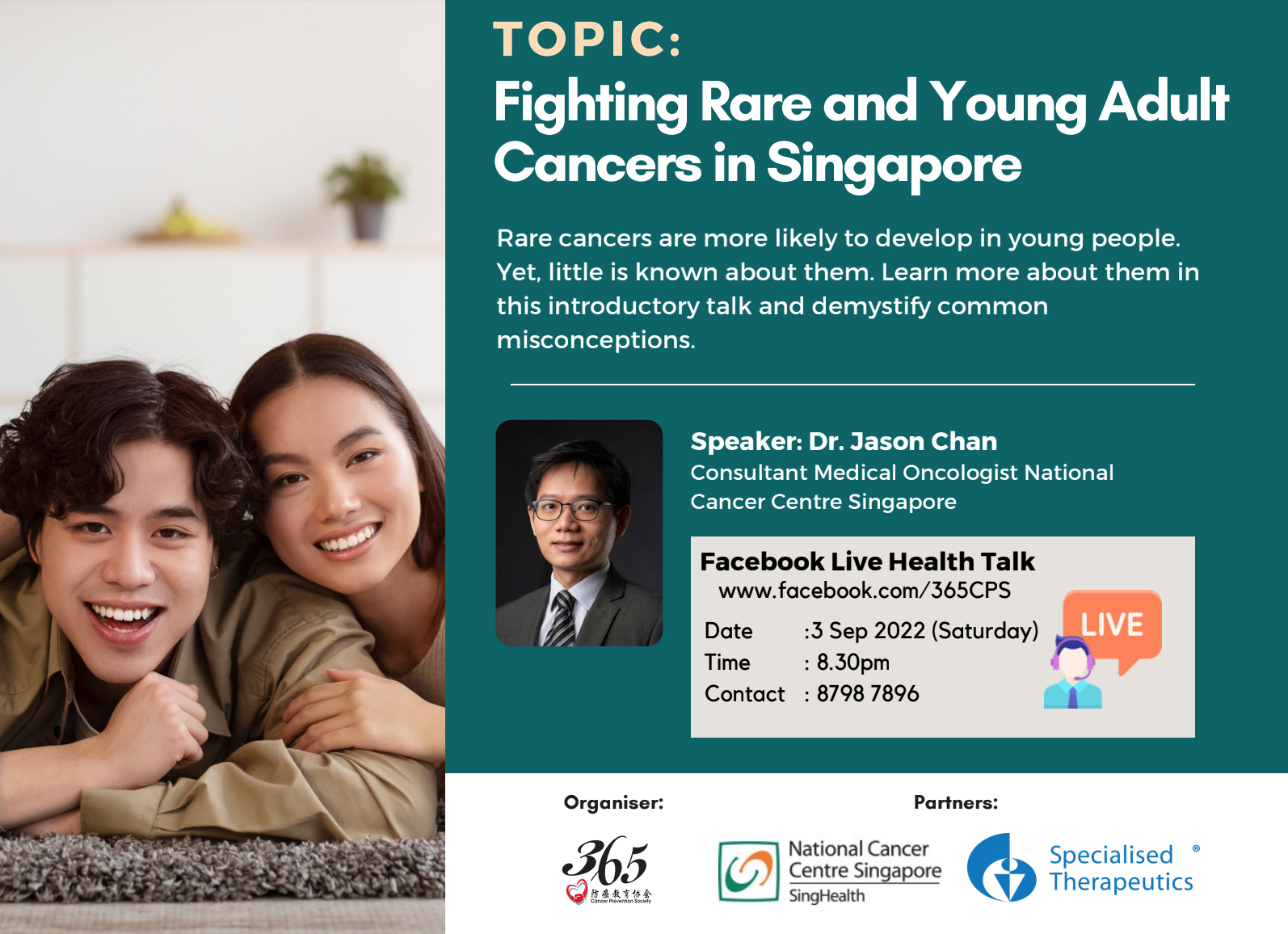When ‘one in a million’ is not uncommon: Dr Jason Chan discusses rare cancers in Singapore

Rare cancers in Singapore are not so rare, according to medical oncologist Dr Jason Chan, who specialises in treating patients with less common oncologic variations.
He says up to 7000 Singapore cancer patients are diagnosed every year with one of about 200 rare cancer variations – which means there are fewer treatment options and scarce information.
Dr Chan will be speaking at a 365 Cancer Prevention Society event on September 3, with the headline topic “Fighting rare and young adult cancers in Singapore”. He gave us an insight into what he wants patients to know.
“Some people have a skewed perception when it comes to rare cancers that they are one in a million, or that they may happen once every few years. But the truth is, when we combine the number of people diagnosed with rare cancers in Singapore, the incidence unfortunately is not that uncommon.
Rare cancers tend to affect young adults, usually in their twenties and thirties. This is a time when they are graduating from school, or perhaps starting a family. You can imagine how it affects their lives – everything is changed very suddenly.
Half of the rare diagnoses we are seeing are soft tissue cancers called sarcomas, rare blood cancers called lymphomas, gastrointestinal stromal tumours and even uncommon melanomas.
We are actually starting to see more cases of a very unique type of melanoma happening in Asians where it is appearing in their hands and feet – areas that have not been sun-exposed.
We don’t know why these melanomas are occurring, and we have been studying this for a few years. It could be genetic or environmental reasons at play, but we need more research.
Many of our rare cancer patients in Singapore are being diagnosed at a later stage, and we need to help these patients access therapies that might be beneficial. There is a lot less clinical data for rare cancers and there are fewer treatment options for patients. Sometimes there are no treatment options at all.
This all means that rare cancers are more difficult to manage for the non-specialist physician. Patients can feel very isolated and five-year survival outcomes for rare cancers are typically poorer than they are for patients diagnosed with other more common cancers.
From my perspective, every rare cancer patient has to be managed in a personalised manner. It should be a joint effort with the patient, the medical team and the family.
Named patient access programs are extremely important, where pharmaceutical companies enable early access to emerging therapies that may be yet to pass through all the regulatory hoops, but there is a great need to give these therapies a go in the absence of any other treatment options. We must think of creative ways to get patients access to drugs.
What do I love about my job? Somebody has to do it! It is challenging and rewarding at same time. We have seen some cases which are really one of a kind in country, or even the world. We definitely have to use our detective skills!
As an example, we had a patient diagnosed with a rare nose cancer about five years ago.
It turned out that his younger brother had a similar cancer in the same location, and he had died. This was very unusual and was unheard of worldwide.
We did some investigative work together with their family and identified a genetic cause that has not been described before.
Essentially, we were able to provide some answers.
What we are doing in Singapore is bringing together like-minded people, scientists, researchers and medical practitioners who are interested in rare cancers and we are forming a national consortium to have a louder voice to advocate for these patients. This is a great step forward but there is much to be done.”
*August 2022
